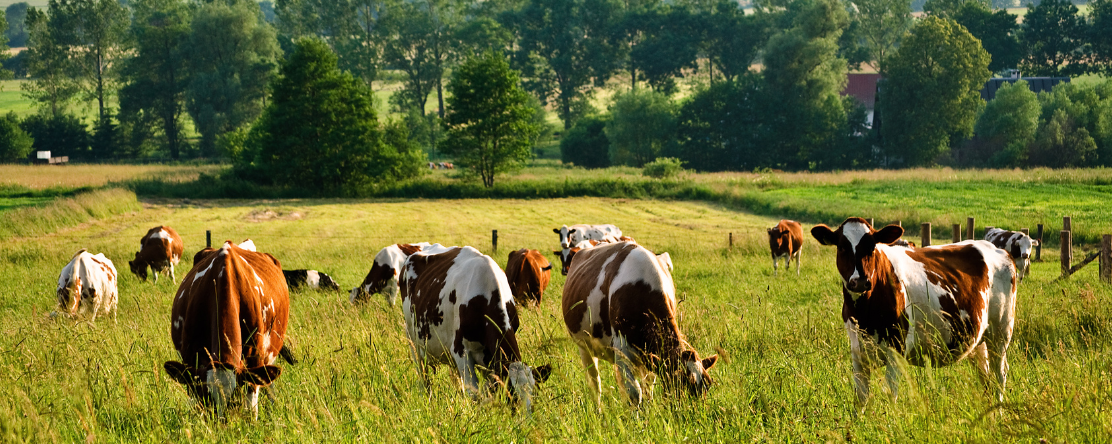
In the News
Supporting Regenerative Beef for a More Healthy, Equitable Food System
- Civil Eats
-
Focus Areas
Healthy Communities -
Issues
Nutrition & Food Security -
Expertise
Coalition & Network Building, Public Policy Advocacy -
Programs
Roots of Change

“It’s no wonder that hospital food gets a bad rap, says Santana Diaz, executive chef at the University of California Davis Medical Center, a sprawling, 142-acre campus located in Sacramento, California. As a seeming compromise between nutrition and institutional efficiency, food has long been dished up as an afterthought to patient care. “That was never the focus of hospitals,” he adds.
But for Diaz, good food is key to good health. Since taking the helm of the facility’s nutrition and dining services in 2018, he has worked to revamp the cuisine, including sourcing almost half of ingredients from farms and ranches within a 250-mile radius of the Sacramento Valley. Food grown in local fields, orchards, and pastures with healthy soil management practices simply make for healthier, more nutritious, and more flavorful meals, he says—the perfect ingredients for changing the “stigma” associated with hospital fare.
Diaz is not alone in making this shift, but he may be ahead of the game. In 2022, the University of California (U.C.) system—a network of 10 campuses and five medical centers—committed to supporting regenerative farming as part of U.C. President Michael Drake’s vision to mitigate the effects of climate change and drive a more equitable food system. And as an advisor to an initiative lead by the nonprofit organization Roots of Change, Diaz is helping to steer the larger institution toward local agriculture—through the system-wide procurement of regeneratively ranched beef.
The term, a general reference to pasture management that prioritizes soil health and perennial plants by grazing livestock through rotated paddocks, encompasses a set of practices that advocates say results in healthier animals and pastures. Research also shows that beef from cattle raised strictly on grass is more nutritious than conventional beef, although it’s not yet clear how regenerative practices may impact those findings.”

Not all pasture-based ranchers have adopted paddock-based regenerative practices, but the number appears to be growing. That’s in part because the holistic principles of regenerative ranching go hand in hand with land stewardship and animal welfare.Michael Dimock
Program director of PHI’s Roots of Change
Click on the link below to read the full article.
Originally published by Civil Eats
More Updates


Safeguarding the Health and Wellbeing of Agricultural Workers in Monterey County: A 5-Year Glance at the COVID Pandemic & Lessons Learned

New Study Reveals Why Alcohol Use Increased During the Pandemic

PHIL Collective: Tools, Training and Resources for Collaborative, Cross-Sector Efforts to Improve Health and Equity
Work With Us
You change the world. We do the rest. Explore fiscal sponsorship at PHI.
Support Us
Together, we can accelerate our response to public health’s most critical issues.
Find Employment
Begin your career at the Public Health Institute.
